 W
W"After Dark" is a song by Japanese Indie rock band Asian Kung-Fu Generation. It was released as the second single of their fifth studio album, World World World, on November 7, 2007, nearly a whole year after the release of the album's lead single. The single debuted in the top ten on the Oricon charts and was selected to be used as the seventh opening theme of the anime series Bleach.
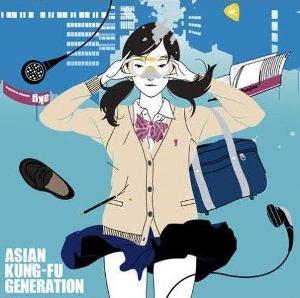 W
W"Aru Machi no Gunjō" is a song by Japanese rock band Asian Kung-Fu Generation. It was released as the lead single of their fifth studio album, World World World, on November 29, 2006. The song was conceived on tour when the director of the then-upcoming anime film, Tekkonkinkreet, approached the band and requested a theme song for his film. AKFG proceeded to compose the track and released it as a single a month prior to the film's December 23 debut. The single peaked at number four on the Oricon charts and sold over 50,000 copies in 2006 alone, becoming the 199th single of the year. The song was ranked 5th on fans request for band's 10th anniversary live setlist on September 14, 2013.
 W
W"Blood Circulator" is a song by Japanese rock band Asian Kung-Fu Generation. It was released on July 13, 2016 and reached number 13 on the Oricon. It was used as the third opening for the 20th season of the anime Naruto Shippuden and the third song by Asian Kung-Fu Generation in the Naruto media, after "Haruka Kanata" and "Sore dewa, Mata Ashita". Masafumi Gotō said, "The offer came to places where there was no song, no idea, no time, but I could not find a reason to refuse, I thought that I had to write down even while I was sleeping." Single's B-side, Hakkei, sung by band's guitarist, Kensuke Kita. This is the fourth time since Re:Re:'s B-side, "Time Traveller" in 2016.
 W
W"Blue Train" is a song by Japanese rock band Asian Kung-Fu Generation. It was released as the first single of their third studio album, Fanclub, on November 30, 2005. The song entered the top five on the Oricon charts and sold well over 100,000 copies by 2006, becoming the 94th single of the year.
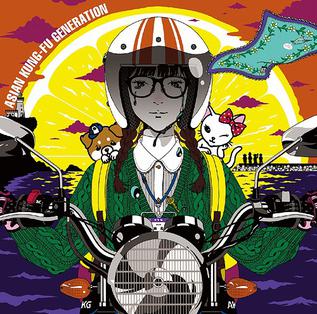 W
W"Boys & Girls" is a song by Japanese rock band Asian Kung-Fu Generation. It was released on September 26, 2018 and reached number 18 on the Oricon. "Boys & Girls" features lyrics described as cheering on all people of today’s generation which thread through a mid-tempo number characterised by powerful and surging guitar riffs. B-side single, "Shukujitsu" was composed by bassist, Takahiro Yamada.
 W
W"Dororo" and "Kaihōku" are songs by Japanese rock band Asian Kung-Fu Generation. Both songs were released as a double A-side and become their 26th single on 15 May 2019. "Dororo" was used as second opening theme for 2019 remake anime, Dororo. "Kaihōku" was used as official support song of Fujieda MYFC and was broadcast at the stadium in a match against AC Nagano Parceiro. Prior to the single release, "Dororo" was available for digital download on iTunes.
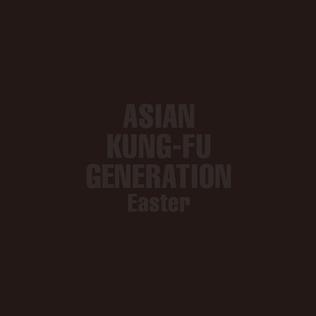 W
W"Easter" is a song by Japanese rock band Asian Kung-Fu Generation. It was released as the lead single of their eighth studio album, Wonder Future, on March 18, 2015. Single's B-side, Seaside Sleeping, sung by band's guitarist, Kensuke Kita. This is the second time since World Apart's B-side, "Uso to Wonderland" in 2006. This is the first time the band didn't use Yusuke Nakamura's artwork on their single, instead they just used the simple artwork with black color because Masafumi Gotoh imagined "Easter" as a grave and resurrection.
 W
W"Empathy" is a song by Japanese rock band Asian Kung-Fu Generation. It was released as single on 4 August 2021 and it was used as the theme song for the 2021 anime film, My Hero Academia: World Heroes' Mission. The single's B-side, Flowers also added as insert song for the same film. The single was produced and arranged by Asian Kung-Fu Generation and Ryosuke Shimomura, who also support member for their live concerts.
 W
W"Fujisawa Loser" (藤沢ルーザー) is the lead single of Japanese rock band Asian Kung-Fu Generation's fifth studio album, Surf Bungaku Kamakura, released on October 15, 2008. The single's b-side is a cover song from American rock band The Rentals.
 W
WHōkai Amplifier is the major-label debut EP by Japanese rock band Asian Kung-Fu Generation, released on November 25, 2002 on Under Flower Records.
 W
W"Ima wo Ikite" is a song by Japanese rock band Asian Kung-Fu Generation. It was released as the single on February 20, 2013, and it was used as the theme song for the 2013 film, A Story of Yonosuke.
 W
W"Kakato de Ai o Uchinarase" is the 17th single of Japanese rock band Asian Kung-Fu Generation. The single was released on April 11, 2012. It was composed by Masafumi Gotoh and Kensuke Kita. It reached number 8 on the Oricon chart.
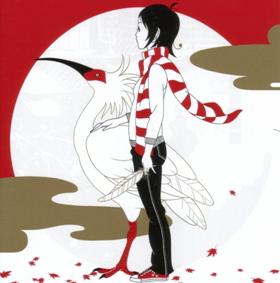 W
W"Kimi no Machi Made" is a song by Japanese rock band Asian Kung-Fu Generation. It was released as the fourth and final single of their second full-length studio album, Sol-fa, on September 23, 2004.
 W
W"Kimi to Iu Hana" is a song by Japanese rock band Asian Kung-Fu Generation. It was released as the second single of their major-label debut album, Kimi Tsunagi Five M, on October 16, 2003. The song's b-side, "Rocket No.4," was later included on the band's 2006 anniversary compilation, Feedback File. "Kimi to Iu Hana" was ranked at 3rd on fans request for band's 10th anniversary live setlist on September 14, 2013.
 W
W"Korogaru Iwa, Kimi ni Asa ga Furu" is a song by Japanese rock band Asian Kung-Fu Generation. It was released as the third and last single of their fifth studio album, World World World, on February 6, 2008. The song was first introduced late 2007 during a live, onstage performance in Korea while the band was on its Project Beef tour. The song was ranked 8th on fans request for band's 10th anniversary live setlist on September 14, 2013.
 W
W"Kōya o Aruke" is a song by Japanese rock band Asian Kung-Fu Generation. It was released on March 29, 2017 and was used as the theme song for the 2017 anime film, Night Is Short, Walk On Girl. Yūsuke Nakamura, the illustrator for all of the band's artwork, is also the person in charge of the original character design for the movie.
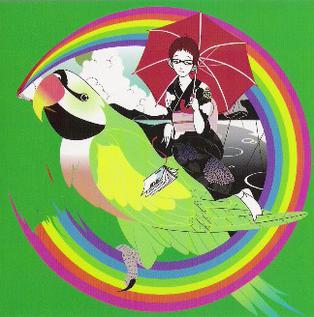 W
W"Loop & Loop" is a song by the Japanese rock band Asian Kung-Fu Generation. It was the second single released from their second full-length studio album, Sol-fa, on May 19, 2004.
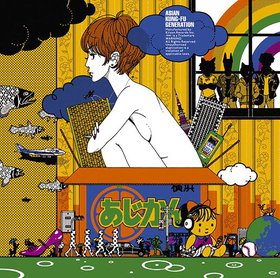 W
W"Maigoinu to Ame no Beat" is the 15th single of Japanese rock band Asian Kung-Fu Generation from their album Magic Disk. The single was released on May 26, 2010. The first track is the main theme for the anime "Yojō-Han Shinwa Taikei", which features character design from Yusuke Nakamura, the same artist who illustrates their CD covers. Maigoinu to Ame no Beat is also their first song to feature brass instruments.
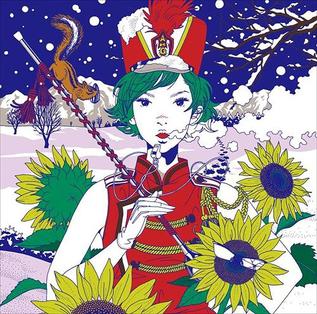 W
W"Marching Band" is the 16th single of Japanese rock band Asian Kung-Fu Generation for their first best-of album Best Hit AKG. The single was released on November 30, 2011. The song "N2" is also featured on the album Landmark.
 W
W"Mirai no Kakera" is a song by Japanese rock band Asian Kung-Fu Generation. It was released as the first single of their major-label debut album, Kimi Tsunagi Five M, on August 6, 2003. The song's b-side, "Entrance," was later included on the band's 2006 compilation, Feedback File.
 W
W"Re:Re:" is a song by Japanese rock band Asian Kung-Fu Generation from their second full-length studio album, Sol-fa. In 2016, they re-recorded Sol-fa and new version of Re:Re: was released as the lead single on March 16, 2016. The 2016 version of Re:Re: was used as the opening for the anime Erased. The song was ranked 2nd on fans request for band's 10th anniversary live setlist on September 14, 2013.
 W
W"Rewrite" is a song by Japanese rock band Asian Kung-Fu Generation. It was released as the third single of their second full-length studio album, Sol-fa, on August 4, 2004. In 2016, they re-recorded Rewrite along with all songs from Sol-fa and released on November 30, 2016.
 W
W"Right Now" is a song by Japanese rock band Asian Kung-Fu Generation. It was released as the single on January 6, 2016 and it was used as the theme song for the 2016 film, Pink and Gray. This is the second time the band didn't use Yusuke Nakamura's artwork on their single, instead they just used the simple artwork of pink and grey color to fit in with the film.
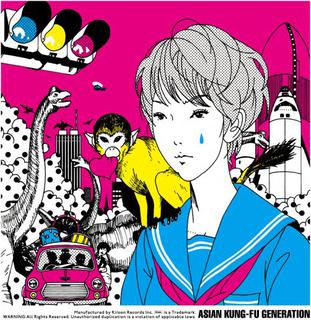 W
W"Shinseiki no Love Song" is the 13th single of Japanese rock band Asian Kung-Fu Generation, released on December 2, 2009. There is a limited edition version with a DVD.
 W
W"Siren" is a song by Japanese rock band Asian Kung-Fu Generation. It was released as the lead single of their second full-length studio album, Sol-fa, on April 4, 2004. With the band's then-newly emerging popularity, the single managed to debut at number two on the Oricon charts. Although the song's B-side, "Siren#," shares a nearly identical title with the single, the two are somewhat different from each other. While both retain the same instrumental, the lyrics and melody of "Siren#" are different from that of "Siren." In a sense, "Siren#" can be considered a continuation or a remix of its A-side.
 W
W"Solanin" is a song by Japanese rock band, Asian Kung-Fu Generation. It was released as a single on March 31, 2010. The song was written for the film of the same name. The music was composed by band member Masafumi Gotoh, while the lyrics was written by Inio Asano, creator of the manga of the same name that the film is based on. Asian Kung-Fu Generation's recording was not used in the film. Instead, a cover, credited to Rotti, a fictional band from the film, with vocals by Aoi Miyazaki, who plays Meiko in the film, was used.
 W
W"Sore dewa, Mata Ashita" ) is a song by Japanese rock band Asian Kung-Fu Generation. It was released on July 25, 2012 and reached number 11 on the Oricon charts, failing to enter the Top 10 since Kimi to Iu Hana. It was used as the theme song for Road to Ninja: Naruto the Movie and one of the 3 songs by Asian Kung-Fu Generation used in Naruto media, alongside Haruka Kanata, and Blood Circulator. The song was ranked 9th on fans request for the band's 10th anniversary live setlist on September 14, 2013.
 W
W"Wake Up!" is a song by Japanese ska band Tokyo Ska Paradise Orchestra featuring rock band Asian Kung-Fu Generation. It was released as the 3rd part of Tokyo Ska Paradise Orchestra's 25th anniversary project 'Band Collaboration Trilogy' on July 2, 2014. Single's B-side include a cover of Nat Adderley's "Work Song" and "I Want To Be A Star Which Twinkles Only For You" which was composed by band's keyboardist, Yuichi Oki.
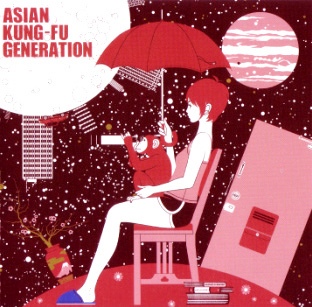 W
W"World Apart" is a song by Japanese rock band Asian Kung-Fu Generation. It was released as the second single of their third studio album, Fanclub, on February 15, 2006. The song is unique for a number of reasons. Not only was it the first single AKG released following their ten-year anniversary, it also became their first number-one single, debuting at the top of the Oricon charts. The song's b-side, "Uso to Wonderland," was also the first recording in which Kensuke Kita held the position of lead singer.